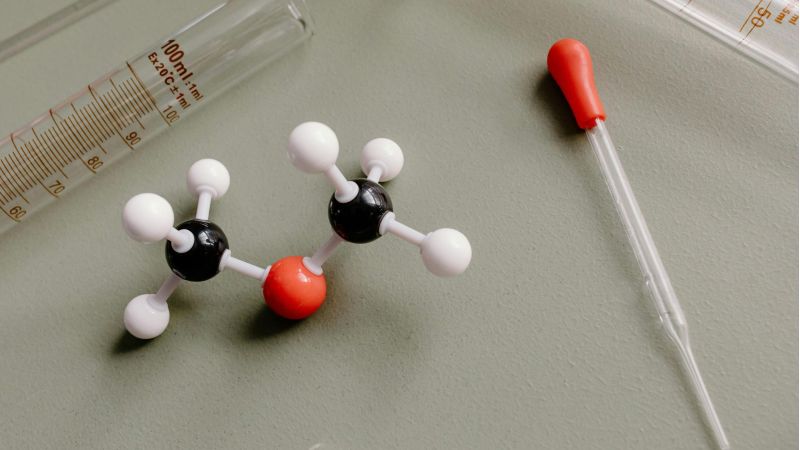
Exploring the Impact of NAD on Fertility: An In-depth Insight
Can NAD+ improve fertility? Increasing research reported a promising connection!
In fact, NAD+ may offer substantial benefits for reproductive and sexual health in both men and women.
So, how does NAD+ influence not only aging but also fertility, libido, and reproductive health in both men and women?
In this article, we’ll explore…
- NAD+ precursors, their role in the body, and how they relate to the aging process.
- The connection between NAD+ precursors and fertility, and what science says about their impact on reproductive health in both men and women.
- The potential benefits (and risks) of NAD+ precursors, and explore their future in fertility treatments.
Understanding NAD+ Precursor and Its Role in the Body
NAD+ precursor is a naturally occurring compound that plays a crucial role in various biological processes.
It is a precursor to the coenzyme nicotinamide adenine dinucleotide (NAD+), which is involved in energy metabolism, DNA repair, and cellular signaling.
NAD+ levels decline with age, and this decline has been linked to numerous age-related conditions, including fertility issues. But what exactly does NAD+ precursor do in the body?
The Biological Function of NAD+ Precursors
As a key component in the NAD+ synthesis pathway, NAD+ precursors help replenish NAD+ levels in the body.
NAD+, also known as the “molecule of youth,” is essential for cellular energy production, maintaining healthy mitochondrial function, and promoting DNA stability.
Without sufficient NAD+, your cells struggle to generate energy efficiently and are more prone to DNA damage.
By increasing NAD+ levels, NAD+ precursor supports overall cellular health and function. It acts as a fuel for the mitochondria, the powerhouses of body cells, enabling them to produce the energy needed for various biological processes.
Additionally, NAD+ precursor plays a vital role in DNA repair mechanisms, ensuring the integrity of your genetic material.
Now that you understand the biological function of NAD+ precursor, it is time to discuss its connection to the aging process.
The Connection Between NAD+ Precursors and Aging
Aging is a complex process characterized by a gradual decline in physiological function. While various factors influence it, growing evidence suggests that age-related decline in NAD+ levels contributes significantly to the aging process.
As you age, your body naturally produces less NAD+, leading to decreased cellular energy production and compromised mitochondrial function.
This decline in NAD+ levels can impair DNA repair mechanisms, making your cells more susceptible to damage and mutations. The consequences of this decline can be seen in various age-related conditions, such as decreased fertility, reduced cognitive function, and weakened immune response.
However, exciting research has shown that NAD+ precursor supplementation has the potential to counteract some aspects of aging by boosting NAD+ levels and supporting cellular functions throughout the body.
By providing an additional source of NAD+ precursor, you can help replenish NAD+ levels and potentially slow down the aging process.
Studies have demonstrated that NAD+ precursor supplementation in animal models can improve mitochondrial function, enhance energy metabolism, and promote overall healthspan.
While more research is needed to fully understand the effects of NAD+ precursor in humans, the preliminary findings are promising.
In conclusion, NAD+ precursor plays a vital role in maintaining cellular health and function by replenishing NAD+ levels. Its connection to the aging process highlights its potential as an anti-aging intervention.
As scientists continue to unravel the mysteries of NAD+ precursor, they may unlock new possibilities for promoting healthy aging and extending lifespan.
The Link Between NAD+ Precursor and Fertility
As fertility declines with age, researchers have begun exploring the potential role of NAD+ precursor in enhancing reproductive health.
Both male and female fertility may be influenced by NAD+ precursor levels, suggesting that supplementation could be a valuable tool in fertility treatments.
NAD+ Precursors and Female Fertility
In women, NAD+ precursor may play a crucial role in maintaining optimal egg quality and supporting reproductive function.
Aging can lead to a decrease in the number and quality of eggs, making it more challenging to conceive1. NAD+ precursor supplementation has shown promise in improving ovarian function and promoting the production of healthier eggs in animal studies.
One study conducted on mice found that NAD+ precursor supplementation increased the number of mature eggs produced and improved their quality.
This is significant because the quality of eggs is a crucial factor in successful conception and healthy pregnancy. By enhancing egg quality, NAD+ precursor could potentially increase the chances of successful fertilization and implantation.
Furthermore, NAD+ precursor has been found to have anti-inflammatory2 properties, which can be beneficial for female fertility.
Chronic inflammation in the reproductive organs can impair fertility by disrupting the delicate balance of hormones and interfering with the implantation process. By reducing inflammation, NAD+ precursor may create a more favorable environment for conception and pregnancy.
While these animal studies show promising results, further research is needed to confirm the effects of NAD+ precursor supplementation on female fertility in humans.
Clinical trials involving women of reproductive age are necessary to determine the optimal dosage and long-term effects of NAD+ precursor on reproductive health.
NAD+ Precursor and Male Fertility
Male fertility is also influenced by NAD+ precursor levels, particularly the quality and motility of sperm. NAD+ precursor supplementation has been found to improve sperm quality and function in animal studies.
In one study, male mice supplemented with NAD+ precursor showed increased sperm motility and improved sperm morphology. These findings suggest that NAD+ precursor could enhance male fertility by supporting sperm health and increasing the chances of successful conception.
Additionally, NAD+ precursor has been shown to have antioxidant properties, which can protect sperm from oxidative damage. Oxidative stress can negatively impact sperm quality, leading to reduced fertility. By reducing oxidative stress, NAD+ precursor may help maintain sperm health and improve fertility outcomes.
It is important to note that while animal studies provide valuable insights, further research is needed to determine the effects of NAD+ precursor supplementation on male fertility in humans. Clinical trials involving men with fertility issues will be crucial in evaluating the potential benefits and safety of NAD+ precursor in improving reproductive health.
In conclusion, NAD+ precursor shows promise as a potential supplement for enhancing fertility in both men and women. By improving egg quality and ovarian function in women and enhancing sperm quality and motility in men, NAD+ precursor may offer a valuable tool in fertility treatments.
However, more research is needed to understand the effects of NAD+ precursor supplementation on human fertility fully and to establish the optimal dosage and long-term safety of this intervention.
The Science Behind NAD+ Precursors and Fertility
“….with low doses of NAD+ Precursor in their (aged mice) drinking water over four weeks … increase in live births during a breeding trial.”
Professor Hayden Homer, the University of Queensland (Australia)
Recent studies have shed light on the fascinating role that NAD+ precursor plays in the intricate processes of egg and sperm quality. NAD+ precursor has been found to regulate various pathways involved in these crucial aspects of reproduction.
One of the key ways NAD+ precursor supports fertility is by helping maintain proper DNA integrity. DNA damage can have detrimental effects on the genetic material passed on to the next generation. However, NAD+ precursor supplementation has been shown to enhance DNA repair mechanisms, ensuring that the genetic material within eggs and sperm remains intact.
In addition to DNA integrity, NAD+ precursor also promotes mitochondrial function. Mitochondria are the powerhouses of cells, providing the energy needed for various cellular processes, including fertilization. By enhancing mitochondrial function, NAD+ precursor supplementation may contribute to the improvement of overall egg and sperm quality, increasing the chances of successful fertilization and pregnancy.
Furthermore, NAD+ precursor supports oxidative stress resistance. Oxidative stress occurs when there is an imbalance between the production of harmful free radicals and the body’s ability to neutralize them. This imbalance can negatively impact fertility by damaging eggs, sperm, and reproductive organs. However, NAD+ precursor has been shown to enhance the body’s antioxidant defenses, reducing oxidative stress and protecting reproductive cells from harm.
Embryo
The Role of NAD+ Precursor in Egg and Sperm Quality
Delving deeper into the role of NAD+ precursor in egg and sperm quality, it is found that its effects extend beyond DNA integrity, mitochondrial function, and oxidative stress resistance. Research has shown that NAD+ precursor supplementation can also enhance the production of healthy eggs and sperm.
By supporting the maturation process of eggs, NAD+ precursor may increase the likelihood of successful fertilization. Similarly, in men, NAD+ precursor has been found to improve sperm motility, morphology, and count, which are crucial for successful conception.
Moreover, NAD+ precursor has been found to have a positive impact on the reproductive lifespan of women. As women age, the quantity and quality of their eggs decline, making it more challenging to conceive.
However, NAD+ precursor supplementation has been shown to slow down this age-related decline, potentially extending the window of fertility for women.
NAD+ Precursors and Hormonal Balance
Hormonal balance is critical for reproductive health, and NAD+ precursor has been shown to influence hormonal pathways related to fertility.
By modulating hormone levels and signaling pathways, NAD+ precursor may help regulate the menstrual cycle, promote regular ovulation, and support optimal hormonal balance in both men and women.
In women, NAD+ precursor has been found to support the production of estrogen and progesterone, two key hormones involved in the menstrual cycle and pregnancy.
By ensuring adequate levels of these hormones, NAD+ precursor may help regulate the timing of ovulation and create a favorable environment for implantation and pregnancy.
In men, NAD+ precursor has been shown to enhance testosterone production, a hormone crucial for sperm production and overall reproductive health.
By optimizing testosterone levels, NAD+ precursor may improve sperm quality and motility, increasing the chances of successful fertilization.
Overall, the scientific evidence suggests that NAD+ precursor supplementation holds promise in improving fertility outcomes. By supporting egg and sperm quality, as well as hormonal balance, NAD+ precursor may offer a natural and effective approach for individuals seeking to enhance their reproductive potential.
Potential Benefits and Risks of NAD+ Precursor for Fertility
While the potential benefits of NAD+ precursor in fertility are promising, it is essential to consider the associated risks and potential concerns.
Prospective Advantages of NAD+ Precursor Supplementation
By boosting NAD+ levels and supporting cellular functions, NAD+ precursor supplementation may offer several advantages for individuals struggling with fertility issues.
These potential benefits include improved egg and sperm quality, enhanced reproductive function, and increased chances of successful conception. Furthermore, the NAD+ precursor’s role in combating age-related decline may be particularly beneficial for individuals facing fertility challenges later in life.
Possible Side Effects and Concerns
While NAD+ precursor supplementation appears generally safe and well-tolerated, it is essential to consider potential side effects and consult with a healthcare professional before starting any supplementation regimen.
The Future of NAD+ Precursor in Fertility Treatments
The potential of NAD+ precursor in fertility treatments is an exciting area of ongoing research and development.
Current Research and Developments
Scientists continue to explore the potential benefits of NAD+ precursor in fertility treatments through laboratory studies and animal models. Early research has shown promising results, but further studies are needed to confirm these findings and determine the optimal dosage and duration of NAD+ precursor supplementation in humans.
The Potential of NAD+ Precursor in Assisted Reproductive Technology
Assisted reproductive technology, such as in-vitro fertilization (IVF), has revolutionized fertility treatments. Incorporating NAD+ precursor supplementation into existing protocols may offer a new avenue for enhancing the success rates of these procedures. By optimizing egg and sperm quality and supporting reproductive function, NAD+ precursor may become a valuable tool in improving the effectiveness of assisted reproductive techniques.
Conclusion
In conclusion, the potential impact of NAD+ precursor on fertility is an exciting area of research. NAD+ precursor supplementation shows promise in supporting reproductive health by enhancing egg and sperm quality, regulating hormonal balance, and potentially counteracting age-related decline.
However, further research is needed to fully understand its mechanisms of action and establish its safety and effectiveness in enhancing fertility. As scientific developments continue to unfold, NAD+ precursor may play a valuable role in future fertility treatments.
Raise NAD levels with Vitality ↑® NAD+ Booster, a clinically validated formulation consisting of NAD+ precursor.
If you’re interested in going deeper on health-related content, here are a few of our recent posts that you may want to read:
- What Does Peak Performance Look Like?
- Why Optimized, Precision Medicine is the Future
- 9 Powerful Benefits of Optimizing Your NAD
- Andrew Huberman is Wrong About NAD, NAD+ precursor & Longevity
Referenced Sources:
Read More














